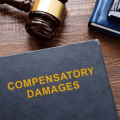Dealing with financial hardship can be a stressful time, especially if you know you owe money to the IRS. If you’ve found yourself in the position where your taxes are overdue, know that the IRS won’t ignore the problem, but it has provided solutions that could help relieve some of your financial strain.
This guide will help you get on the right track to signing up for the best debt relief program for your needs.

Image via Flickr by Tim Reckmann
Depending on your personal circumstances, you might be in a position to pay your tax debt in a more timely manner than others. If you’re now able to pay in full, you can choose to submit a lump-sum payment, including penalties and interest, to handle matters quickly.
If you aren’t currently able to pay the full amount due, you can apply for a short-term or long-term installment agreement. You would still accrue penalties, interest, and other fees, but you’d be given time to pay back what you owe without extra trouble from the IRS.
If you’re in such a dire financial position that you are afraid you’ll never be able to pay what you owe to the IRS, you might be eligible for an Offer in Compromise. This could reduce what you owe and allow you to pay back a debt settlement in a time and manner that you could afford. The IRS will take a look at your personal circumstances, such as your ability, income, expenses, and assets to determine your capabilities.
Eligibility Requirements to Qualify and Apply for Debt Relief Programs
While it’s certainly possible for you to apply for these different debt relief programs on your own, without experience it might be difficult to wade through the options and choose what will work best for your personal situation.
Before you begin your search for debt relief assistance, you should be aware of scams that promise you results with the IRS, which are never a sure thing. Be especially wary if you’re asked to pay upfront fees.
If you need help, your best bet is to hire a certified public accountant in your area, use a professional tax service that is nationally recognized and has great online reviews, or take advantage of community tax services that are often free for those in difficult financial situations.
Pros and Cons for Enrolling in a Debt Relief Program
It might seem on the surface that a debt relief program is an obvious decision, but there are several things to consider before enrolling. Of course, lowering the amount of your debt, avoiding legal trouble, and escaping credit problems such as bankruptcy are important factors. Still, you must weigh what a program will cost you in long-term fees, especially if the IRS doesn’t agree with your financial assessment.
Whichever route you take to relieve your debt, do your research first and obtain professional assistance where necessary to make a sound decision for your needs.

























OwIng back tax debt to the government has significant consequences.
The IRS can games wages, freeze bank accounts and seize assets to satisfy outstanding tax debts.
The tax resolution to companies below are experts on state and federal tax laws.
They help strategize your best approach and negotiate with the IRS and state tax commissions.